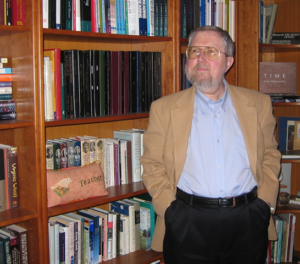Neuropsych
All Stories
Because intelligence is not the same thing as rationality.
The origin of the word ‘respect’ comes from the Latin verb ‘respicere’, which means to take another look back at something or someone. Here’s how to restore respect after conflict.
▸
5 min
—
with
Your brain’s heightened sensitivity can make you perceptive and creative. But it’s a double-edged sword, researchers find.
Is “alloparenting” the end of family as we know it?
When a ‘Rick and Morty’ fan recently tweeted at Dan Harmon asking how to deal with depression, it didn’t take him long to reply.
In 1944, the economist, physicist, mathematician and computer scientist John von Neumann published a book that became a sensation, at least among mathematicians – Theory of Games and Economic Behavior. […]
Research points to many social-cognitive, emotional, behavioral and biological benefits that marriage seems to bestow on its participants.
Could neuroscience help a Jeffrey Dahmer or a Ted Bundy become… better people?
If we’re going to treat psychological suffering as effectively as we treat pneumonia and broken bones, we’d better think outside the box.
Mindfulness meditation works wonders for people with internalizing disorders, such as anxiety and depression. But what about people with externalizing disorders?
A new study shows that “magical thinking” can be reduced by presenting and processing information in a second language.
A previously unknown species – single people – has recently been discovered.
Here are four great brains from great minds, and how they differ from yours.
Social observers are particularly attuned to braggadocio. What do you think of a person who claims to be a better driver, performer or lover than average? Is this person better […]
Boredom has benefits. New research finds that device-free solitude deactivates high arousal emotions while reducing stress and promoting relaxation.
Everyone thinks they know how to make their brain more creative and have better ideas.
▸
4 min
—
with
Most marriages end in resentment. Why should longevity be the sole marker of a successful marriage?
Our empathy is getting better, but universal? No way.
A new study explains why some people seem to be better than others at ridding their minds of intrusive thoughts.
The idea is just as ‘crazy’ as Einstein telling us that time slows down at high speeds, or Darwin saying that our ancestors were apes.
The question isn’t “are you happy”… but rather “what kind of happy are you”?
Are you scared—of flying, the dark, anything? Or are you scared about not being in total control of the situation?
▸
7 min
—
with
A new study shows that adult dogs can learn to distinguish generous and selfish people, but puppies can’t.
Two meditation pioneers, Daniel Goleman and Richard J. Davidson, answer that question in their new book, Altered Traits.
Scientists realize that fish are sentient and intelligent, though unfortunately, they also get depressed.
Since hope appears to come from a physical place in the brain, scientists are hoping to figure out how it shields the rest of the brain from negativity. Really.
How do people with a split brain continue to function as a single human being?
It seems intuitive that the best way to interpret how others are feeling would be to both see and hear how they’re behaving. However, a new study suggests that’s dead wrong.
Denying the possibility of immoral actions may be the very basis of our society.
Acupuncture has a bad rap in the scientific community, but can modern brain scanning techniques redeem it?





























